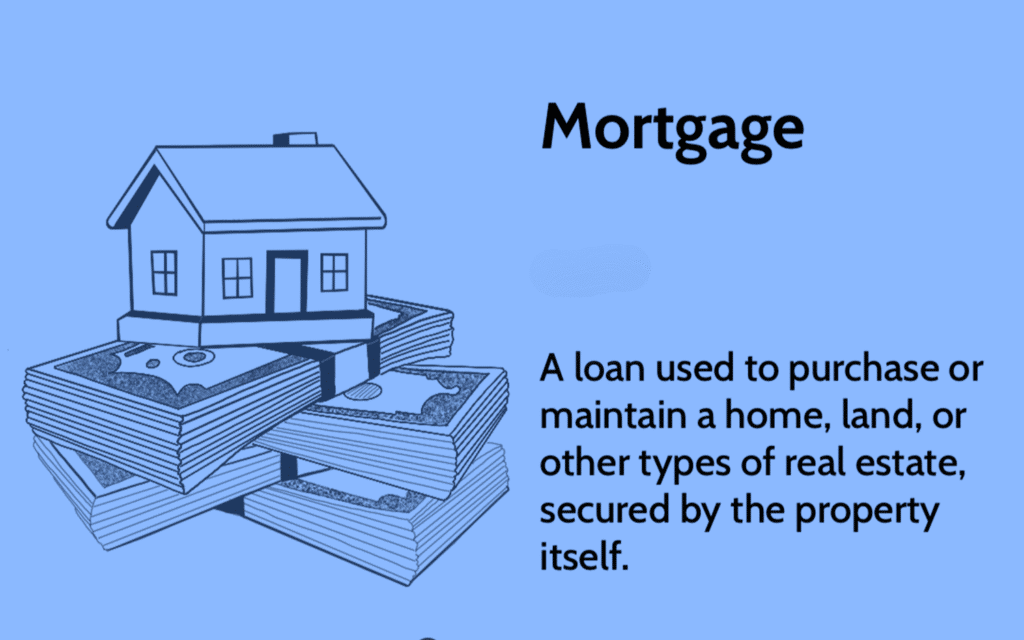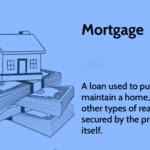Buying a home is one of the most significant financial decisions you will make in your lifetime. To achieve this milestone, most people rely on mortgages to finance their home purchase. A mortgage is a loan specifically designed for buying property, with the home itself serving as collateral. Understanding the different types of mortgages available is crucial for making an informed decision that aligns with your financial situation and long-term goals. This guide will explore the various types of mortgages, their benefits, and considerations to help you choose the right mortgage for your needs.
1. Fixed-Rate Mortgages
What is a Fixed-Rate Mortgage?
A fixed-rate mortgage is one of the most common types of home loans. As the name suggests, it offers a fixed interest rate for the entire term of the loan, typically ranging from 15 to 30 years. This means your monthly mortgage payments remain constant, providing stability and predictability in your budget.
Advantages of Fixed-Rate Mortgages
- Predictable Payments: With a fixed-rate mortgage, your monthly payments stay the same throughout the loan term, making it easier to plan your finances.
- Protection from Interest Rate Fluctuations: You are protected from market volatility and rising interest rates, which can increase monthly payments in adjustable-rate mortgages.
- Long-Term Stability: Fixed-rate mortgages offer long-term stability, making them an ideal choice for those planning to stay in their homes for many years.
Disadvantages of Fixed-Rate Mortgages
- Higher Initial Rates: Fixed-rate mortgages often start with higher interest rates compared to adjustable-rate mortgages (ARMs).
- Less Flexibility: If interest rates drop significantly, you may miss out on potential savings unless you refinance your mortgage.
2. Adjustable-Rate Mortgages (ARMs)
What is an Adjustable-Rate Mortgage?
An adjustable-rate mortgage (ARM) features an interest rate that changes periodically based on a specific index or benchmark. ARMs typically start with a lower interest rate compared to fixed-rate mortgages, making them attractive to borrowers looking for lower initial payments.
Advantages of Adjustable-Rate Mortgages
- Lower Initial Rates: ARMs often begin with lower interest rates, resulting in lower initial monthly payments compared to fixed-rate mortgages.
- Potential for Lower Payments: If interest rates remain stable or decrease, your payments could stay low or even decrease over time.
- Flexibility: ARMs can be beneficial if you plan to sell or refinance your home before the adjustable period begins.
Disadvantages of Adjustable-Rate Mortgages
- Uncertainty: Monthly payments can increase if interest rates rise, potentially straining your budget.
- Complexity: ARMs have more complicated terms and conditions, requiring careful consideration and understanding of how rate adjustments work.
Common ARM Variations
- Hybrid ARMs: These mortgages offer an initial fixed-rate period (e.g., 5, 7, or 10 years) before transitioning to adjustable rates. For example, a 5/1 ARM has a fixed rate for the first five years and adjusts annually thereafter.
- Interest-Only ARMs: Borrowers pay only interest for a specified period (e.g., 5 or 10 years), followed by principal and interest payments for the remainder of the term. This can result in lower initial payments but higher payments later.
3. Government-Backed Mortgages
FHA Loans
Federal Housing Administration (FHA) loans are designed to help first-time homebuyers and those with low to moderate income. These loans are insured by the FHA, allowing lenders to offer more favorable terms to borrowers who might not qualify for conventional loans.
Advantages of FHA Loans
- Lower Down Payment Requirements: FHA loans typically require a down payment as low as 3.5% of the purchase price.
- Flexible Credit Requirements: FHA loans have more lenient credit score requirements, making them accessible to borrowers with less-than-perfect credit.
- Assumable Loans: FHA loans can be assumed by a new buyer, potentially saving money on closing costs.
Disadvantages of FHA Loans
- Mortgage Insurance Premiums (MIP): Borrowers must pay upfront and annual MIP, which can increase the overall cost of the loan.
- Property Standards: Homes purchased with FHA loans must meet specific standards set by the FHA, which can limit your choice of properties.
VA Loans
The Department of Veterans Affairs (VA) offers VA loans to eligible veterans, active-duty service members, and surviving spouses. These loans provide favorable terms and benefits to those who have served in the military.
Advantages of VA Loans
- No Down Payment: VA loans often require no down payment, making homeownership more accessible.
- No Private Mortgage Insurance (PMI): VA loans do not require PMI, reducing monthly payments.
- Competitive Interest Rates: VA loans typically offer lower interest rates compared to conventional loans.
Disadvantages of VA Loans
- Funding Fee: Borrowers must pay a funding fee, which can be financed into the loan amount.
- Eligibility Requirements: VA loans are only available to eligible veterans, service members, and certain surviving spouses.
USDA Loans
The U.S. Department of Agriculture (USDA) offers loans to promote homeownership in rural and suburban areas. These loans are designed for low to moderate-income borrowers who meet specific eligibility criteria.
Advantages of USDA Loans
- No Down Payment: USDA loans often require no down payment, making them an attractive option for eligible borrowers.
- Low Interest Rates: USDA loans typically offer competitive interest rates.
- Flexible Credit Requirements: USDA loans have more lenient credit requirements compared to conventional loans.
Disadvantages of USDA Loans
- Geographic Restrictions: USDA loans are only available in designated rural and suburban areas.
- Income Limits: Borrowers must meet income eligibility requirements, which vary by location.
4. Specialized Mortgage Options
Jumbo Loans
Jumbo loans are designed for borrowers seeking to finance homes that exceed the conforming loan limits set by the Federal Housing Finance Agency (FHFA). These loans are often used for luxury properties and homes in high-cost areas.
Advantages of Jumbo Loans
- Higher Loan Amounts: Jumbo loans allow borrowers to finance more expensive properties that exceed conforming loan limits.
- Competitive Interest Rates: Despite their higher loan amounts, jumbo loans often offer competitive interest rates for qualified borrowers.
Disadvantages of Jumbo Loans
- Stricter Requirements: Jumbo loans have more stringent credit, income, and down payment requirements.
- Higher Interest Rates: Some jumbo loans may have higher interest rates compared to conforming loans.
Interest-Only Mortgages
Interest-only mortgages allow borrowers to pay only the interest on the loan for a specified period, usually 5 to 10 years. After the interest-only period ends, borrowers must begin paying both principal and interest.
Advantages of Interest-Only Mortgages
- Lower Initial Payments: Interest-only payments can be significantly lower, freeing up cash flow for other expenses or investments.
- Flexibility: These mortgages can be advantageous for borrowers expecting higher income or asset growth in the future.
Disadvantages of Interest-Only Mortgages
- Higher Future Payments: Once the interest-only period ends, monthly payments increase significantly as both principal and interest are due.
- Risk of Negative Amortization: If property values decline, borrowers may owe more than the home’s worth when principal payments begin.
Balloon Mortgages
Balloon mortgages offer lower initial monthly payments, similar to interest-only loans, but require a large lump-sum payment (the balloon payment) at the end of the loan term.
Advantages of Balloon Mortgages
- Lower Initial Payments: Borrowers benefit from lower initial payments, which can be helpful for short-term financial planning.
- Potential for Refinancing: Borrowers may refinance the mortgage before the balloon payment is due.
Disadvantages of Balloon Mortgages
- Risk of Balloon Payment: The large final payment can pose a significant financial challenge if refinancing or selling the property is not an option.
- Limited Availability: Balloon mortgages are less common and may not be offered by all lenders.
Choosing the right mortgage is a critical step in the homebuying process. By understanding the different types of mortgages available, you can make an informed decision that aligns with your financial goals and circumstances. Whether you opt for a fixed-rate mortgage, an adjustable-rate mortgage, a government-backed loan, or a specialized mortgage, each option has its unique benefits and considerations.
We hope this comprehensive guide has provided you with valuable insights into the various types of mortgages. If you have any questions, experiences, or additional tips to share, we invite you to leave a comment below. Your feedback and stories can help others in the community make informed decisions and achieve their homeownership dreams.






